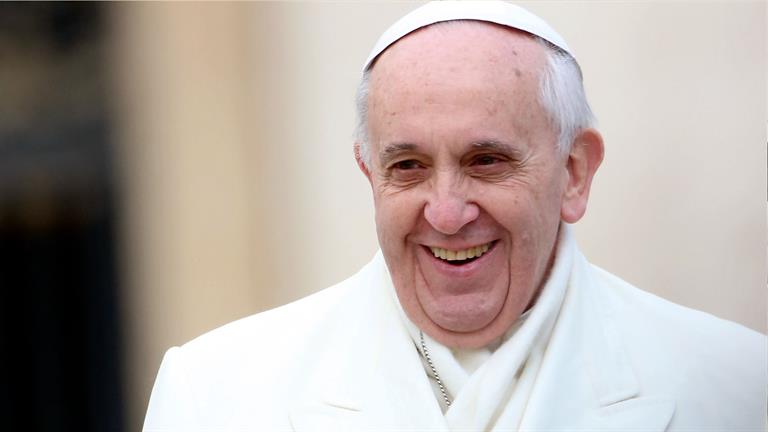Pope Francis To Be The First To Visit An Active War Zone
Pope Francis

NEW DELHI: Pope Francis, having returned to the Vatican from his recent American tour, is set to travel again. The Pope will be making his first official visit to Africa, where he is scheduled to visit Kenya, Uganda and the Central African Republic (CAR).
If the Pope manages to make the trip to CAR as scheduled -- an upswing in violence has thrown the visit in jeopardy-- it will be the first time a Pope, at least in modern times, will visit an active war zone.
The Pope’s visit to the CAR can be significant for the purpose of peace, as thousands of people are estimated to have been killed in CAR, and 2.2 million need humanitarian aid in a conflict which erupted when mainly Muslim Séléka rebels launched attacks in December 2012. The violence has since taken on increasingly sectarian overtones.
The crisis originated within the context of anti-government resentment as Seleka rebels ousted then President Francois Bozize in March 2013, accusing him of reneging on a peace deal that would have resulted in a unity government led by Bozize.
The violence originated in the north east, from where Seleka rebels spread, eventually seizing Bangui, resulting in Bozize fleeing to Cameroon. As all things religious, the trouble is not owing to primordial religious affinities, but a competition for power and resources. The majority of CAR’s population is Christian, as was Bozize, whereas a majority of Seleka rebel forces, including Seleka leader Michel Djotodia who served as the country’s transitional president until 10 January 2014, are Muslim.
The Seleka rebel movement originated in years of marginalisation and discrimination against the northern, predominantly Muslim, population. With the Seleka capturing power, the groups hitting back were largely Christian, leading to a sectarian character to the conflict.
The nature of CAR’s independence can be linked to ongoing instability in the region. Like other regions in Africa, nationhood was fairly arbitrary, drawn by colonial powers on a map culminating in a transfer of power after years of exploitation. In the absence of national identity, people clung to another sense of identity - religious. This, coupled with underdevelopment and a competition over resources, culminated in a power struggle along religious or sectarian lines.
A vicious cycle of reprisal has led to the perpetuation of violence. With the Seleka establishing control, Christians groups organised themselves into militias, and capitalising on the weakness of state machinery, including the army, went on a rampage killing, torturing, raping and looting, especially targeting Muslims in the country’s north west. These loosely organised forces are known as “anti-balaka” militia (“machete proof” in Sango). A December 2013 attack by the anti-balaka on Bangui led to an explosion of violence.
Since the resignation of President Djotodia in January 2014, the situation has changed significantly. Seleka forces began to withdraw from their outposts across the country, with anti-Balaka militia moving in and spearheading violent attacks against the area’s Muslims. Amnesty International states the following, “[Anti-Balaka forces] killed many hundreds of Muslim civilians, sometimes in large-scale massacres, looted Muslim homes and shops, and burned and destroyed mosques. Among their victims were women and young children; in some cases entire families were killed. Their stated goal was to rid the country of Muslims forever.”
Anti-balaka forces are now the main perpetrators of the violence, with Seleka forces retreating to the north, where they too continue to commit serious abuses in the territory under their control.
Recent months have seen the worst violence in the crisis, with a “massive ethnic cleansing” involving a forced exodus of tens of thousands of Muslim civilians to neighbouring countries. This displaced population lives mainly in makeshift camps under dire conditions. The few Muslims who remain in CAR are concentrated in the western part of the country, and are nearly all displaced and waiting for evacuation.
The situation is so grave that UN human rights chief Navi Pillay warned that hatred between Christians and Muslims in CAR had reached a "terrifying level," and the UN warned that the “seeds of a genocide are being sown.”
In recent days, there have fresh reports of violence from CAR. This week, during a prayers at St. Peter's Square, the Pope highlighted the plight of people in CAR expressing “strong worry” for the “painful episodes of the past days that have worsened the situation in Central African Republic," according to Vatican Radio.
Pope Francis said he wanted to reiterate the Catholic Church's closeness to the "afflicted and tormented nation," and hopes to travel to CAR at the end of the month, where he was planning to visit a refugee camp as well as the Koudoukou mosque in Bangui.
CAR’s interim President Catherine Samba-Panza has called on the UN mission in the country to make extra efforts to secure upcoming events. Efforts are needed so that "Bangui can be secured for the coming events that are crucial for the country. The Pope's visit and the elections should be unifying events for the people of Central Africa,” the interim President said.
The Vatican, however, has said that the visit will be cancelled if fighting intensifies.



